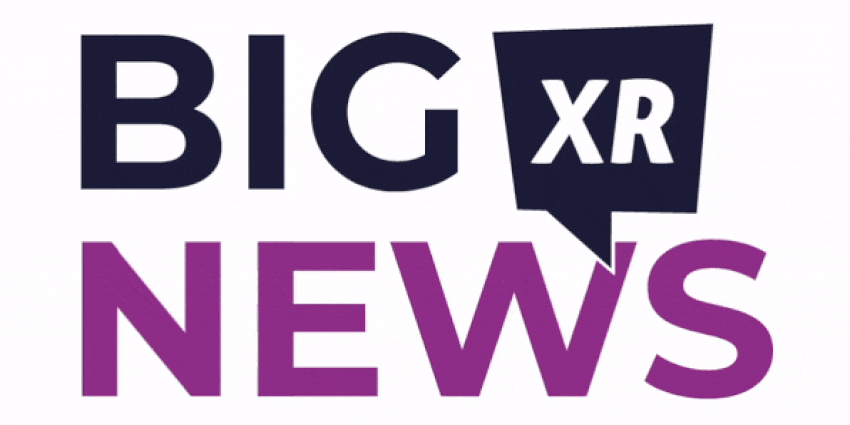Constantly with the help of new emerging technologies such as conversational AI, the world is figuring out how best to improve their daily lives and work routines with software and hardware solutions.
While the emergence of everyday smart glasses and Metaverse usage still seems far away, vendors and developers are using integrated tech to solve marketplace-wide issues like content delivery and accessibility.
Other emerging XR solutions and related technology are taking the world by storm. Most notably, prompt-based AI is taking that mantle. Yesterday, Microsoft debuted CoPilot, an integrated 365 tool enabling users to streamline work documentation creation.
Meanwhile, many XR solutions are still building upon the foundations of 2022’s big technology hype, the Metaverse. While adoption appears slower than more accessible AI solutions, core industry players are solving emerging issues to get XR on the doorstep as soon as possible.
Avatars in Microsoft Teams to debut in May
This coming May, Microsoft is debuting “Avatars in Microsoft Teams.” The Mesh-powered service allows Teams users to correspond with their coworkers as a digital rendition of themselves.
Avatars in Microsoft Teams offer a fancy alternative to a camera feed and let users participate in a video call without connecting a camera – increasing usability as hybrid and remote working expectations increase.
Microsoft is working hard to offer immersive solutions based on its Mesh infrastructure, so this update comes at a good time. Microsoft Mesh is a service in Azure that uses XR technology to provide interoperable immersive communication and collaboration solutions.
Avatars in Microsoft Teams come after Microsoft closed its Metaverse collaboration and communication service Altspace VR.
After the service launched in May 2015, Microsoft purchased Altspace VR in 2017. Microsoft discontinued the Metaverse service on March 10, 2023, due to a significant increase in competition from the Metaverse’s growing popularity over time,
After the closure, Microsoft devoted a significant portion of its remaining staff and resources to Mesh.
Alongside its immersive avatar-based communications service. Microsoft is also investing heavily in the emerging AI landscape. Recently, the firm entered a deep working partnership with OpenAI to leverage its Chat GPT solution across its 365 infrastructure.
Alongside its Avatars in Teams update, Microsoft Teams and 365 is also gaining CoPilot, an AI-based tool to enhance the service for workers at all levels.
VITURE’s David Jiang Provides a BTS Look into XR Product Development
This week, the Co-Founder and Chief Executive of VITURE, David Jiang, sat down with XR Today to discuss his firm’s new device and how his firm reacted to current marketplace trends to debut an effective XR consumer device.
Jiang dove into the various elements his team covered when designing the VITURE 1 smart glasses. According to Jiang, the device reflects two core industry trends currently emerging within the XR space: display technology and cloud computing.
Both elements enable manufacturers to create a high-quality XR device that champions portability and immersion.
Jiang also added:
There’s a possibility that none of the devices can achieve immersion and portability at the same time, so this [the VITURE 1] is the device where you can achieve both at the same time.
VITURE 1 is a lightweight XR headset wearable for up to three hours. The device uses a unique operation system (OS) that lets operators stream media content onto virtual screens while simultaneously moving between AR and VR spaces.
Meta Platforms Announces 10,000 Job Cuts
Meta is set to sack 10,000 positions across its activities.
The tech giant that owns Facebook, Instagram, WhatsApp, and the Quest portfolio announced the layoffs just a few months after approving 11,000 layoffs in November of last year.
The memo also stated that Meta would eliminate an additional 5,000 open positions at the company. In his statement, Zuckerberg noted that the layoffs would be “tough” given the company’s plans for a “year of efficiency.”
In addition, Zuckerberg stated that he believed the company had experienced a “humbling wake-up call” due to the low revenue in 2022. Despite making over $23 billion that year, the business reported earnings decreased 4 percent year-over-year.
Regarding the most recent layoffs, Meta CEO Mark Zuckerberg said:
I think we should prepare ourselves for the possibility that this new economic reality will continue for many years.
House of Blueberry on Secrets to Web3 Fashion Success
XR Today interviewed Mishi McDuff, the Founder and Chief Executive of House of Blueberry, to examine the advantages of Web3 fashion, Metaverse Fashion Week updates, and empowering women with XR technologies.
The Web3 company creates fashion and digital worlds to support user identities. The company recently collaborated with Roblox to create a virtual Metaverse boutique. Roblex also has a successful branded initiative with Nike.
During the chat, McDuff noted that digital fashion is “more sustainable, more accessible, and easier to scale” for big brands.
Mishi McDuff added:
The constraints of the physical world do not limit users, so they can be a lot more creative, too. Additionally, digital fashion is highly socialised and rooted in building community, which makes metaverse activations a great way to build brand affinity—particularly among Gen Z users.

